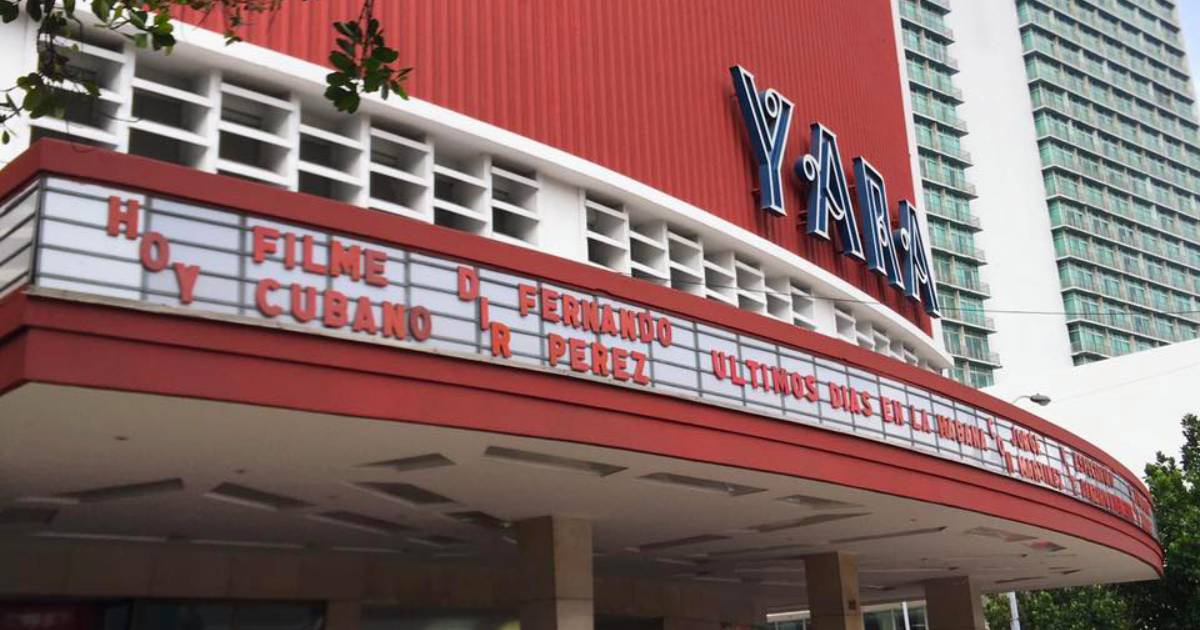
This Friday, the Assembly of Cuban Filmmakers rejected censorship at the Havana Film Festival, after two documentaries were excluded from the event's billboard.
In an open letter published in The artists reiterated their "rejection of any policy that involves acts of censorship and exclusion against works and authors," which they considered "a perverse model that nullifies that elemental right of any citizen to enjoy and interpret those works for themselves."
In the letter, they affirm that once again the Havana Film Festival – to be held from December 8 to 17 – is the scene of the "sustained exercise of institutional violence" against creators.
"Two Cuban films (“Calls from Moscow”, directed byLuis Alejandro Yero and“Fito's Havana”, ofJuan Pin Vilar) have once again been removed from the contest and other sections without explanation. We have learned that the Festival Selection Committee, made up of prestigious specialists who have dedicated a lifetime to consolidating the prestige of this Festival, has been once again pressured to exclude these works from its curatorship of the event," they argue.
The assembly denounces that it is a "harmfulmode of operation"and reiterates that he does not accept" that our society continues to be dismembered due to the inability to accept dissent, difference, the fear of discussing ideas and the lack of will to work to find points of consensus, coexistence and respect for others. others".
The filmmakers affirm that "you cannot be anti-colonial by banning films and artistic works made by our creators. You cannot speak on behalf of the people if you are not able to listen to and respond to the cry of that people. You cannot warn of the danger of a single reading of History proposing as the only narrative that which is written from power".
Likewise, it qualifies as"culture war simulacrum" the regime's excuses for banning the aforementioned documentaries.
In this regard, he says that with the excuse of the cultural war "an attempt is made to evade" the filmmakers' demand "for a horizontal discussion on censorship and exclusion in Cuban cinema," which was raised a few weeks ago after the ban on exhibit the documentary "La Habana de Fito" in a room in the Cuban capital.
"We have denounced how, from the Ministry of Culture, several senior officials have been controlling, censoring and, in many cases, threatening artists who decide to express themselves critically about the problems that beset us for a long time. This is the main cause of the brutal exodus of our union, added to that stampede in which the nation is bleeding," they emphasize.
"It is not the artists, nor the filmmakers, who are responsible for the harsh reality in which we live. It is not their works that impose a single thought. Cinema does not impose, what imposes is power," they recalled.
The assembly also rejected the criminalization of filmmakers, and stated that "Cuban cinema made inside and outside of Cuba does not belong to an institution or a group of officials."
The publication was signed by representatives of the Assembly of Cuban Filmmakers, among them,Fernando Perez (director and screenwriter),Deymi D'Atri (director and photographer),Juan Antonio García Borrero (researcher and film critic),Ernesto Daranas (director and screenwriter),Rosa María Rodríguez (director and producer),Luis Alberto García (actor and producer),Kiki Alvarez (director and screenwriter),Katherine T. Gavilan(director and actress),Gustavo Arcos (professor and film critic),Carla Valdes (director and screenwriter) andManuel A. Rodríguez Yong (producer and director).
The day before, Yero denounced that many workers at the Cuban Institute of Cinematographic Art and Industry (ICAIC) were threatened in the style of a "vile mafia" to keep them silent about the pressure exerted to exclude the two works from the festival.
"It is immoral to participate in a festival that hides these abuses and welcomes filmmakers from all over the continent as if Havana – a city sunk in sadness – were a Caribbean resort where they can drink mojitos and pat each other on the shoulder" , considered the director.
What do you think?
SEE COMMENTS (1)Filed in: